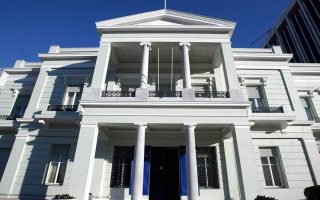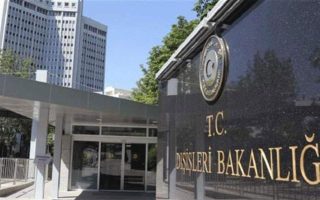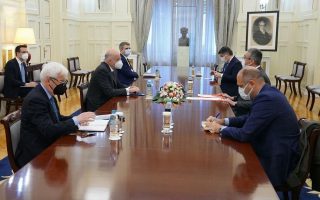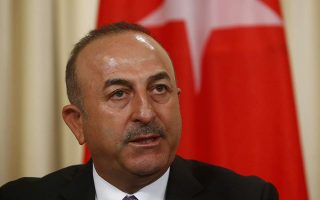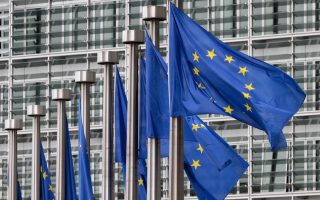Bracing for a difficult summer
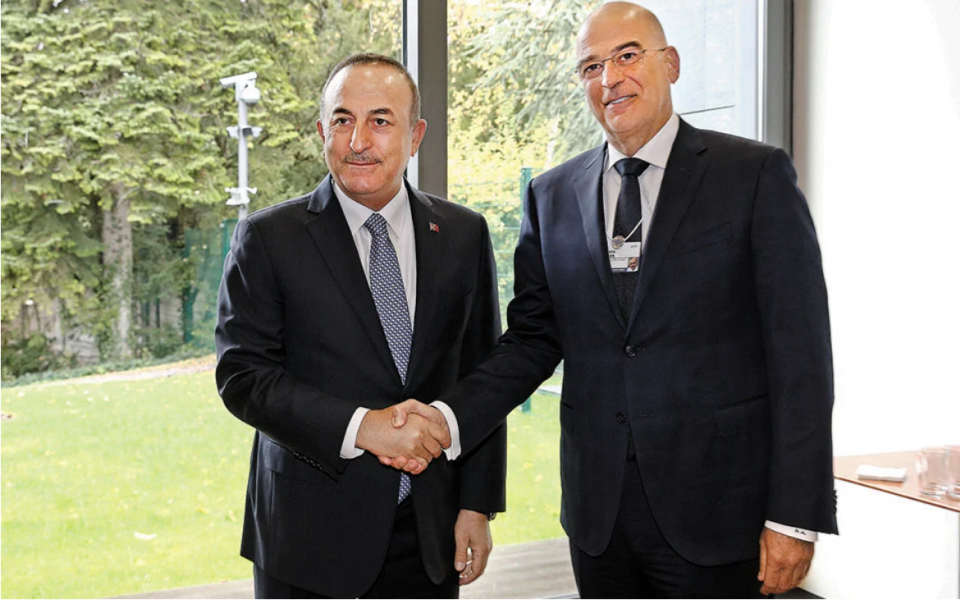
Greece is bracing for a long period of intensive diplomatic activity, followed by what could be a difficult summer.
The last round of exploratory talks with Turkey, Ankara’s reactions to developments in EU policy toward it and the increasing US presence in Greece reinforce the impression that Turkish President Recep Tayyip Erdogan is trapped on a one-way street that leads to escalation.
Erdogan’s domestic moves suggest that, having dominated politics for nearly 20 years, he is now banking on actions that reinforce society’s nationalist and Islamist reflexes, an especially dangerous mix. Despite his proclamations about a mutually beneficial cooperation with the West, Erdogan’s actions undermine the possibility of a sincere understanding with the European Union or the United States.
The situation is further complicated by something that appears to intensely rankle Ankara: Greece’s more prominent diplomatic presence in the west, especially the US. The disproportionately aggressive statements by Turkish officials over the presence of US troops – i.e. of NATO allies – in Thrace, close to the Greek-Turkish land border, and the use of the port of Alexandroupoli, suggest a concern in Ankara.
Sources with a lengthy and deep experience of geopolitical equilibria in the Balkans and eastern Mediterranean, the Turks are not only disturbed because of the ad hoc presence of US troops in Thrace or elsewhere in Greece, such as in Souda, but also because they realize Washington is exploring alternative option in case relations with Turkey reach an impasse. In other words, Greece is treated as the southern point of an axis that begins in the Aegean and ends in the Baltic Sea, with Turkey not being necessarily a part.
The revival of the pharaonic plan of an “Istanbul Canal,” a second Bosporus that, according to Turkey’s view, will not be burdened by the restrictions of the 1936 Montreux Convention Regarding the Regime of the Straits, suggests precisely this annoyance of Erdogan’s and his AKP fellow travelers. Of course, nobody in the west desires at present a rift with Turkey, however those who follow developments closely believe the creation of alternative routes and the designing of deterrence plans speak volumes.
The EU stance is singular. Individual members such as Germany and Spain are very skeptical about the future of Greek-Turkish relations. Spain’s banks are dangerously exposed to a Turkish economy under pressure, while German politicians perpetually worry that Turkish Germans can affect the electoral outcome one way or another. However, the report by High Representative Josep Borrell – which reflects a compromise among Commission members’ differing views than the veteran Spanish politician’s own – shows, among other things, that the EU is becoming more wary. The initial conviction that problems between EU and Turkey can be mitigated has been replaced by the willingness to find a modus operandi with the country that is clearly on a divergent path from the EU and its priorities.
All this means that Athens remains vigilant and awaiting. As Kathimerini has several times written these past few months, there are three likley senarios on how Anklara could choose escalation. First, by returning a research vessel in the eastern Mediterranean. Second, by using a mobile drilling platform. Third, by again weaponizing refugees and migrants. The last year, the pandemic has made for a relatively quiet year on the latter front. However, a feeling that the pandemic may be receding has once again emboldened the traffickers, as the latest developments in the eastern Aegean show.
